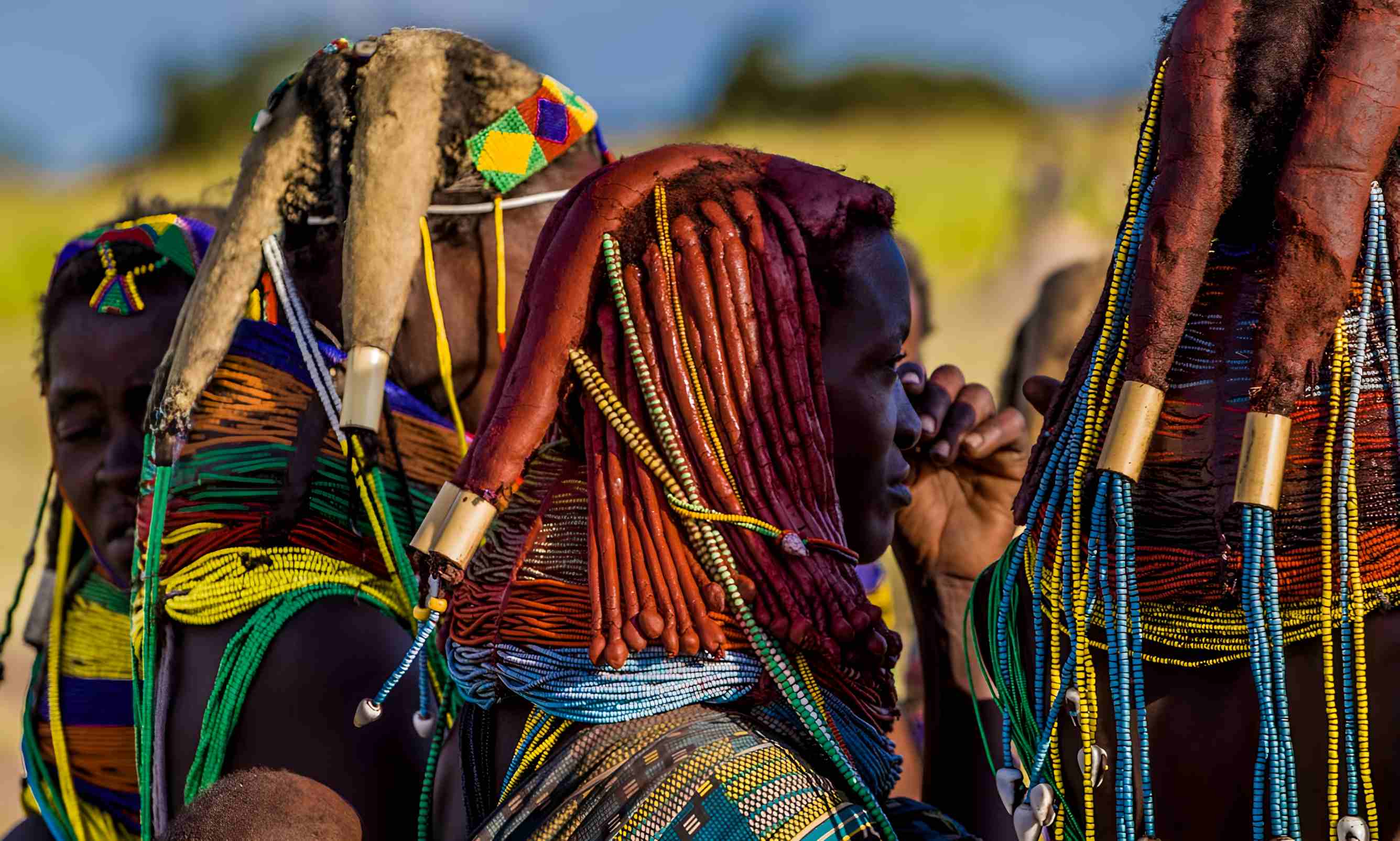Angola's Mwila Tribe: A living heritage

Their commitment to cultural identity remains strong even in the modern world.
The Mwila (also known as Mumuhuila) tribe is an ethnic group living in the southern region of Angola, primarily in the province of Huíla.
They are a semi-nomadic people known for their distinctive hairstyles, traditional clothing, and body adornments, which reflect age, social status, and cultural identity.
One of the most recognizable features of the Mwila culture is the elaborate hair styling of women. Their hair is covered in a mixture of red ochre, butter, and crushed herbs, then shaped into thick braids or loops.
These hairstyles are not only decorative but also signify a woman’s marital status or whether she has undergone initiation rituals.
For example, young unmarried girls wear specific braids that change after marriage or childbirth.
Mwila women also wear heavy necklaces made from stacked layers of beads or metal rings. Some of these rings are worn permanently and are added to mark age or important life events.
In many cases, women wear multiple necklaces that can weigh several kilograms. These items are considered a sign of beauty and tradition and are not removed, even while sleeping.
Clothing among the Mwila is simple and handmade. Women typically wear skirts made from animal hides, often decorated with beads, shells, and coins.
Men dress more modestly but maintain traditional elements in ceremonies and communal events.
Cattle play a central role in Mwila society. They are a primary source of wealth and are often used as part of dowries during marriage negotiations.
Farming is also practiced, with crops such as millet, sorghum, and maize being cultivated during the rainy season.
The Mwila live in small homesteads made of clay, wood, and grass. These communities are tightly knit, with extended families often living nearby.
Leadership within the tribe is usually maintained by elders, who are responsible for resolving disputes and preserving customs.
Religion and spirituality are closely tied to nature and ancestral worship. Rituals are performed to seek blessings, protection, and rain.
Initiation ceremonies, especially for young girls, are key cultural events, marking the transition from childhood to adulthood.
Despite contact with modern society and outside influences, the Mwila have managed to preserve much of their traditional way of life.
Their commitment to cultural identity remains strong, even as infrastructure and economic development slowly reach their territories.
